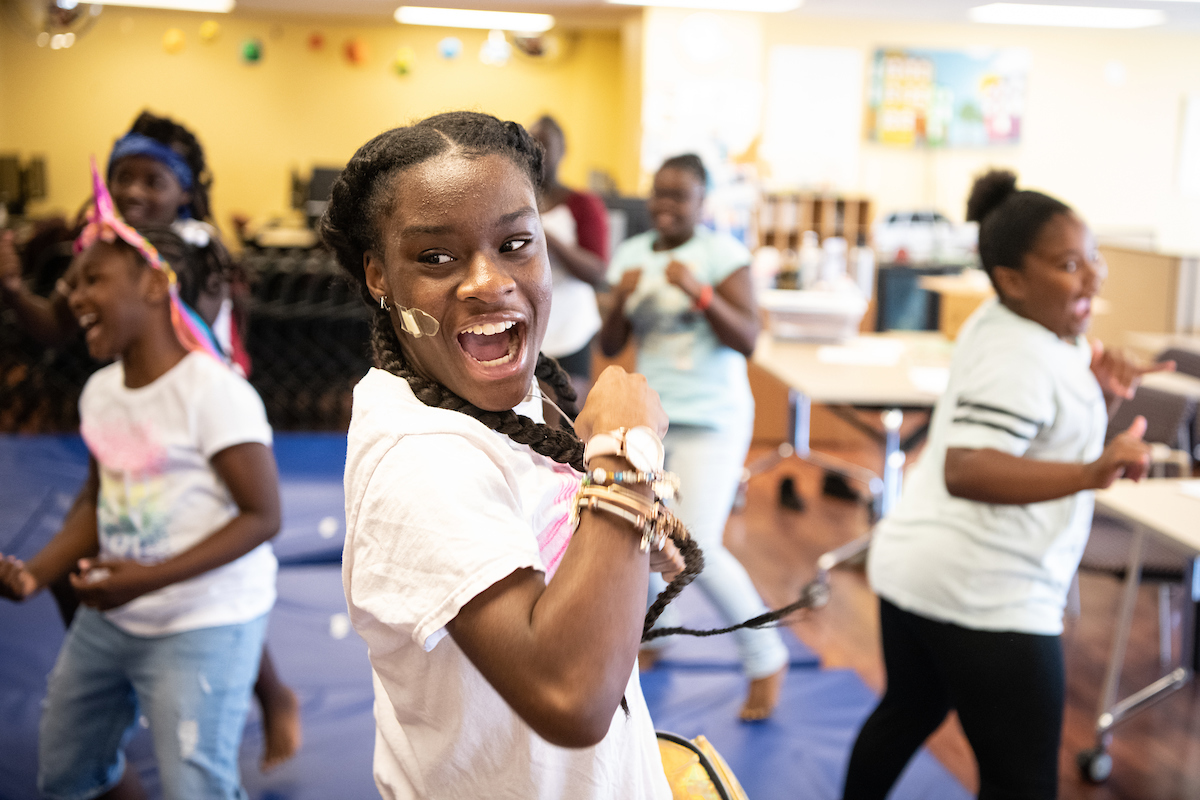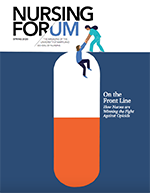Collective Thinking Helps Heal Baltimore City
June 04, 2020 Laura Hager
Former Maryland Sen. Shirley Nathan-Pulliam, MAS, BSN ’80, RN, sought improvements for her constituents.
Shocked by the conditions in which many of her constituents were living, former Maryland Sen. Shirley Nathan-Pulliam, MAS, BSN ’80, RN, who chaired the state Senate’s Subcommittee on Minority Health Disparities of the Health and Government Operations Committee, set out to improve the social, economic, and physical conditions for those living in her constituency, District 44, which includes parts of Baltimore City and County.
Recognizing the need to identify and address negative social determinants of health, Nathan-Pulliam, an UMSON Visionary Pioneer, convened a workgroup in February 2015 that brought together academics, community organizations, entrepreneurs, government representatives, health care system leaders, local residents, and urban planners interested in making a difference. As the workgroup grew, a need arose for a formal structure to gather evidence and build a strategy for addressing the issues of health inequity.
“One of the best things happening in the workgroup was the information sharing,” said Yolanda Ogbolu, PhD ’11, MS ’05, BSN ’04, CRNP, FNAP, FAAN, assistant professor and chair of the Department of Partnerships, Professional Education, and Practice. “Through conversations, we started to recognize where substantial work was being done in some areas and also where no work was being done. This was powerful in reducing duplication of efforts, building synergy, and really understanding how we could all address a common problem.”
The information sharing was timely, but there was no formal infrastructure, so Nathan-Pulliam put forth Senate Bill 444, which established The Task Force on the Social Determinants of Health in Baltimore City, signed into law on May 15, 2018, by Maryland Gov. Larry Hogan. The goal of the task force is first to identify and examine the negative social factors that can span generations and cause a community to struggle to survive and then to address them by developing and implementing solutions to improve the lives of residents in the places they live, work, play, and worship.
The Senate bill mandated that the University of Maryland, Baltimore (UMB) lead the task force. “UMB is located in downtown Baltimore, right at the heart of some of the things we need to get accomplished when you begin to look at social determinants,” Nathan-Pulliam said.
The task force quickly convened, and Nathan-Pulliam and former UMB President Jay A. Perman, MD, appointed an advisory board. Involved with the initiative since the inception of the original workgroup, Ogbolu was tapped to chair the task force. Today the task force includes about 75 people from the same organizations that contributed to the original workgroup, including faculty from the University of Maryland schools of Nursing and Medicine.
The task force is composed of five subcommittees, each responsible for setting goals and collaborating with the community to develop recommendations and projects that will address and improve a specific social determinant of health:
- Health and Human Services focuses on addressing high rates of communicable and chronic diseases, stroke, suicide, high infant mortality, low birth rates, poor and inadequate nutrition, excess morbidity, high rates of alcoholism, as well as opioid and other substance use.
- Housing develops a strategy and identifies funding sources to mitigate risks from health hazards, including poor air quality, lead pipes and paint, and falls.
- Social Justice establishes relationships with community organizations, such as Turn Around Tuesday, which works to reduce crime by creating job opportunities for citizens with criminal backgrounds, and Baltimoreans United in Leadership Development, to increase voter turnout in West Baltimore.
- Workforce Development and Jobs establishes a network of faith-based institutions to pursue connections and receive funding that will increase workforce development and job opportunities for young people, ages 14-24.
- Education develops evidence to inform future strategies by completing a comprehensive review to understand how the impact of violence in schools in Baltimore affects learning outcomes.
The task force meets monthly to share feedback and discuss the interconnectedness across groups. “If there is something one subcommittee can’t solve, a lot of times another group might have a recommendation from an entirely different way of thinking,” Ogbolu said. “That is the beauty of the task force and why it is so important for us to all be in the same room. Every time I am with the group, I feel like I have learned something new, a different way to solve a problem. It is really about synergy and collective thinking.”
 THIS ARTICLE FIRST APPEARED IN THE SPRING 2020 ISSUE OF MAGAZINE.
THIS ARTICLE FIRST APPEARED IN THE SPRING 2020 ISSUE OF MAGAZINE.
Photograph: West Baltimore community members participate in a self-defense class.